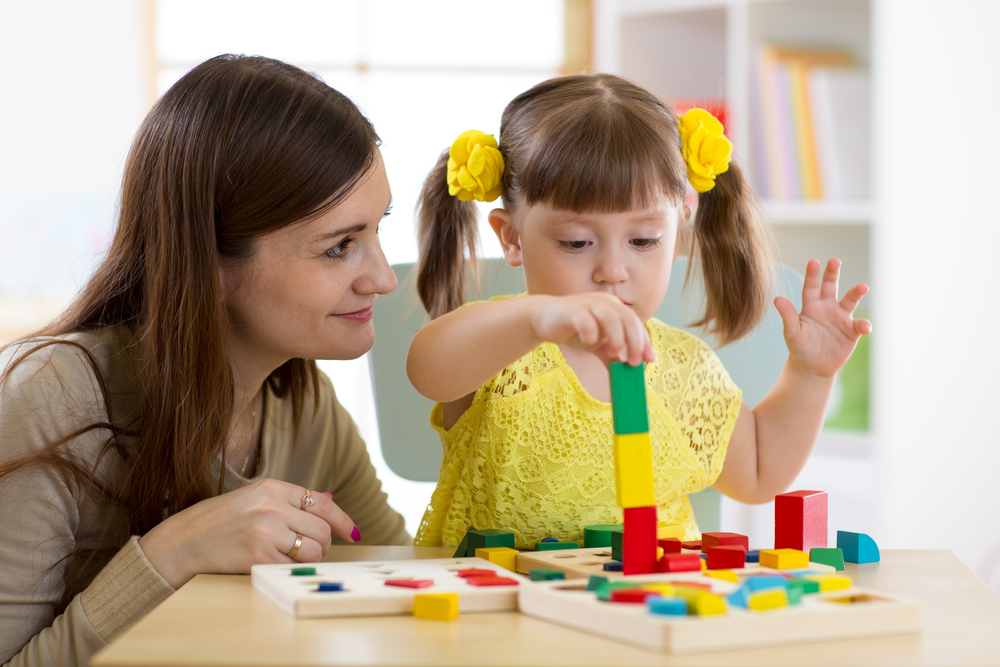
ABA Therapy for Children With Autism at Inner Circle
Discover how ABA therapy can benefit children with autism. Our team at Inner Circle provides personalized and evidence-based ABA therapy services.
What is ABA Therapy?
Applied Behavior Analysis (ABA) therapy is a research-based scientific method of therapy that helps children with autism and other developmental disorders learn important new skills while working through everyday barriers, social difficulties, and challenging behaviors.
Effective ABA therapy is not a “one size fits all” approach and should never feel as such. In order to achieve a truly individualized treatment plan, a Board-Certified Behavior Analyst (BCBA) will customize the therapy to each child’s skills, needs, interests and preferences. This means that an ABA program for one child may look completely different from another child’s.
The goal of ABA therapy is to help your child learn new skills and become more independent in various areas of life.

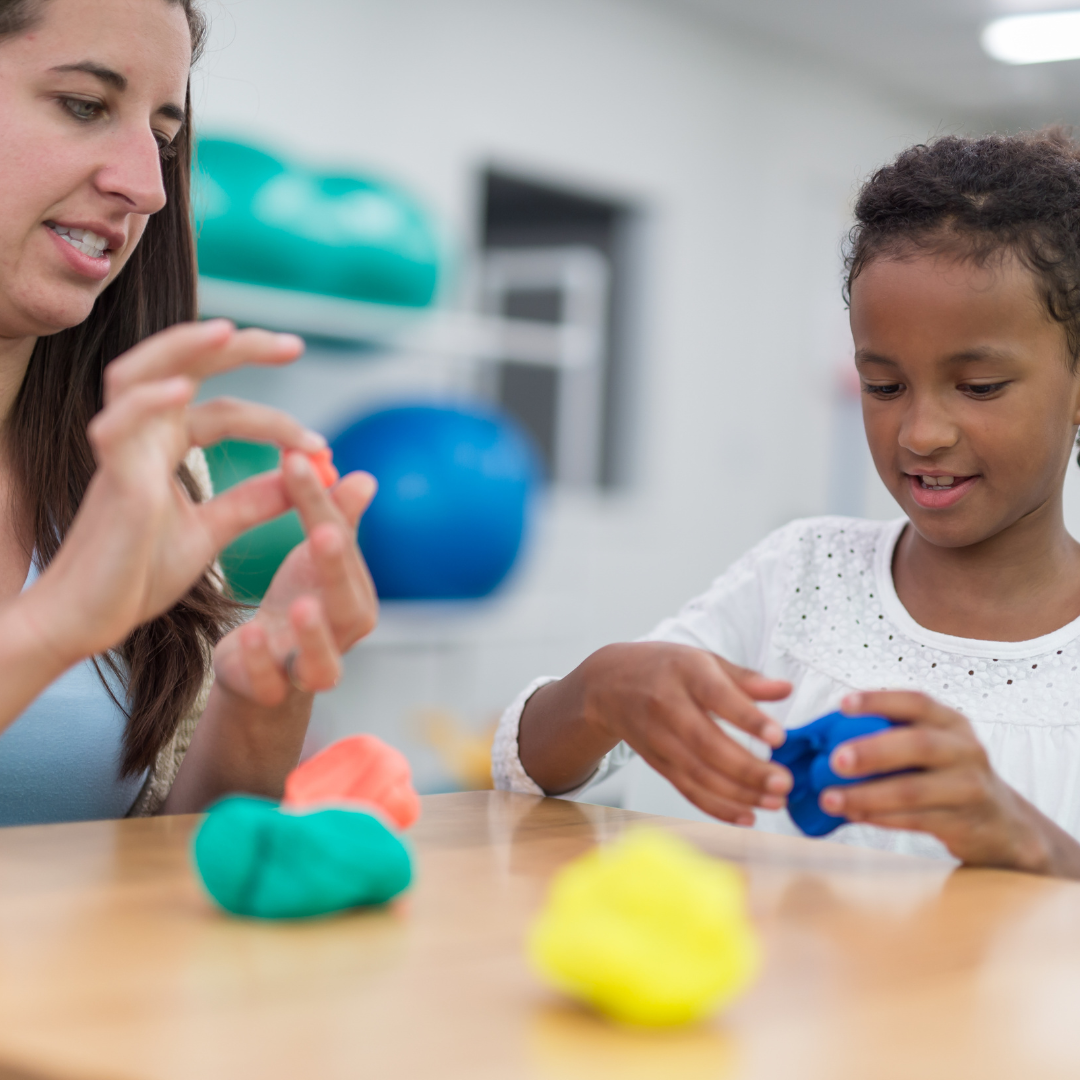
How Does ABA Therapy Work?
A Board-Certified Behavior Analyst (BCBA) begins by conducting a formal assessment and an in-depth parent interview. Based on the assessment, a treatment plan is developed with specific measurable goals.
A behavior therapist will work one-on-one with your child implementing the treatment plan through structured instruction. Throughout your child’s therapy program, your child’s BCBA will continuously monitor their progress and adjust as needed based on the data collected.
During treatment, your therapy team will collaborate with you on treatment goals and provide guidance, training, and support to maintain progress beyond therapy sessions.
Benefits of ABA Therapy for Children With Autism
ABA therapy is proven to teach children a variety of skills and adaptive behaviors including:
- Communication
- Social awareness
- Positive peer interactions
- Academic engagement
- Self-care skills
- Play skills
- Self-esteem
- And more
ABA therapy is also proven effective in working through challenging behaviors such as tantrums, bed-wetting, feeding problems, aggression, self-injury, and other destructive or dangerous behaviors.

Getting Started With ABA Therapy at Inner Circle
The Inner Circle team is here to help you through every step of the 3-step intake process.
1. Consultation
We believe that it is important to take the time to get to know you and your child. During the consultation, a BCBA reviews your child’s history to better understand their unique needs, discuss therapy options, and answer any questions you may have.
2. Evaluation
During the evaluation, the treatment team assesses your child’s skills, behaviors, and needs through direct observation, direct assessment, and parent interviews. This information is then used to develop a customized treatment plan, establish goals, and determine the level of services needed.
3. Starting ABA Therapy
Once we have reviewed and finalized your child’s treatment plan, we submit it to your insurance provider for approval. Once approved, your child will be ready to start receiving ABA therapy.
Home-Based ABA Therapy
Inner Circle offers home-based ABA therapy on a case-by-case basis, giving children the opportunity to receive treatment in a familiar environment.
Children with autism who receive home-based services go through the same comprehensive assessment and evaluation process as children receiving center-based therapies, and receive an individualized treatment plan that includes personalized goals that fit their unique strengths and needs.
With home-based ABA therapy, your child receives the same level of quality treatment in their natural environment, allowing family and caregivers to more easily participate.
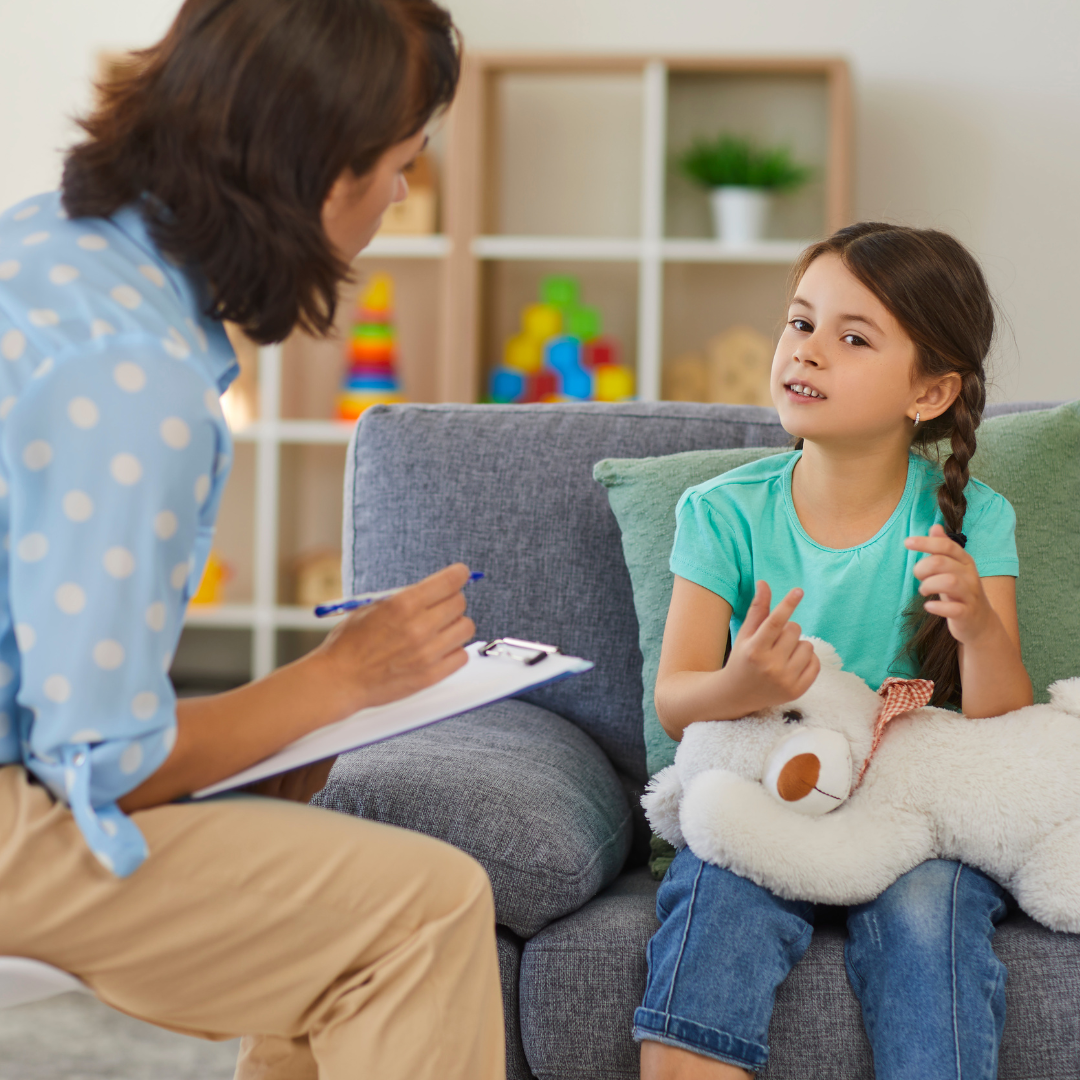
ABA Therapy 101
Explore these helpful articles and learn more about Inner Circle ABA therapy!
Why In-Person ABA Therapy at Inner Circle Autism Network Is the Gold Standard for Your Child
When your child is diagnosed with autism, one of the first and...
Sensory-Friendly Environments: How Small Tweaks Make a Big Impact
Part of iCAN’s Autism Acceptance Month Blog Series For many children...
A Day in the Life: Peek into an ABA Therapy Session at iCAN
Part of iCAN’s Autism Acceptance Month Blog Series At iCAN, no two...
ABA Therapy and Your Family’s Quality of Life: Building Lifelong Communication Skills
When children have difficulties communicating, every aspect of...
ABA and Your Family’s Quality of Life: Enjoying More Together as a Family
Doing things together as a family can be challenging for any family...
Clinic Design That Works for Children and our Staff
Walking into any one of the Inner Circle Autism Network’s clinics...
Meet Inner Circle’s Experienced BCBAs
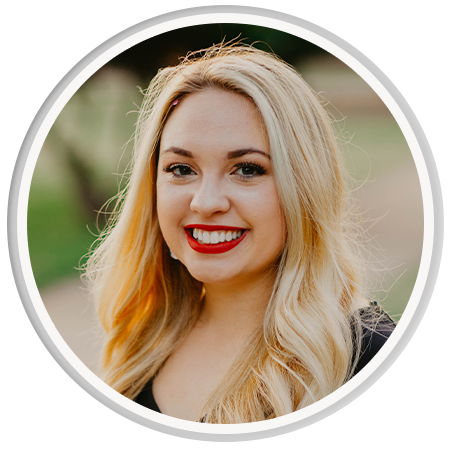
Madeline Birchfield
BCBA | Edmond
Maddie is a licensed behavior analyst in Oklahoma and joined Inner Circle as a BCBA at the Edmond location. Her educational background is in psychology and ABA, and she has experience providing education in an elementary setting. She has been in the field of ABA since 2020 and brings valuable experience as a BCBA.
Some of Maddie's passions in the field include fostering effective communication among the children, training staff, and making a positive impact on families' everyday lives.
Outside of work, Maddie enjoys being a proud dog mom to Elle, her Boston terrier!
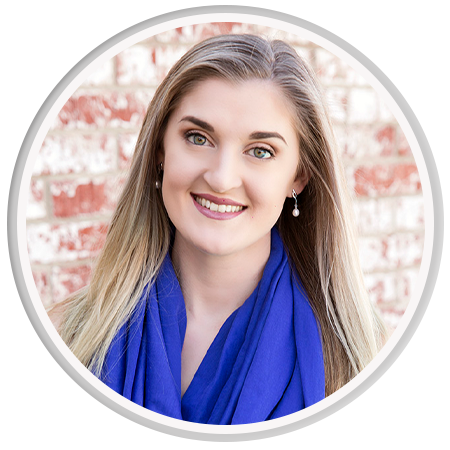
Grace Erington
BCBA | Springdale
Grace comes to Inner Circle with an educational background in psychology, child learning and development, applied cognition and neuroscience, and ABA. Grace has been in the field of ABA since 2016, bringing experience from a variety of settings as a BCBA. Some of Grace’s passions in the field include adaptive living skills and functional communication training.
Grace uses the science of ABA to work toward happy and independent lives for all of her clients. Outside of work, Grace enjoys spending time with her husband and young son, Jax!
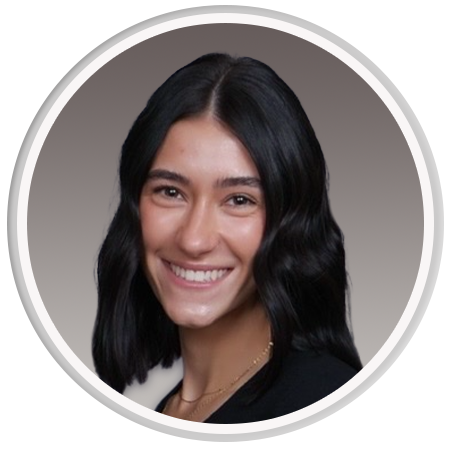
Calli Glover
BCBA | Oklahoma City
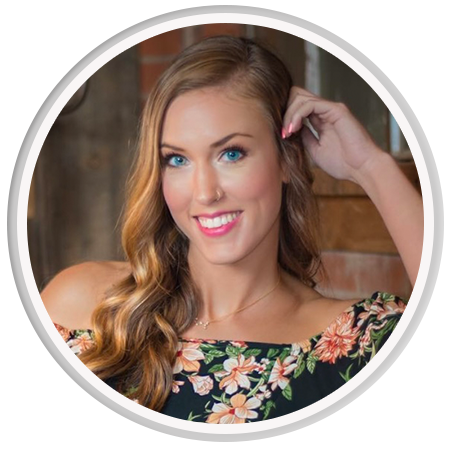
Lexi Lippoldt
BCBA | Oklahoma City
Lexis is a BCBA in the state of Oklahoma who has an extensive educational background in psychology, with an emphasis in Applied Behavior Analysis.
Some of Lexi's passions in the field include collaboration, increasing independence and autonomy, parent and staff training, and participating in continuing education opportunities. Outside of work, Lexi enjoys spending time with her husband and rescue dog Poncho.
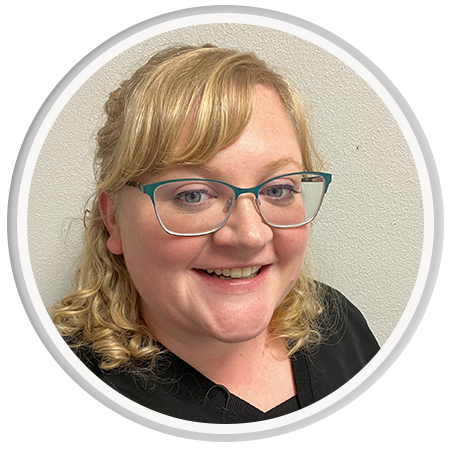
Jessica Nuessen
BCBA | Bentonville
Prior to becoming a BCBA, Jessica spent 8 years as a special education teacher in Kansas working with middle and high school aged students.
She started in the field of ABA as an RBT in 2019 and earned her BCBA in 2021. She has worked in a variety of settings with clients between the ages of 3 and 18. She enjoys collaborating with staff and parents through ongoing training, using a naturalistic teaching approach to help clients develop daily living skills as well as teaching functional communication. Outside of work she enjoys spending time outside with her family and traveling.
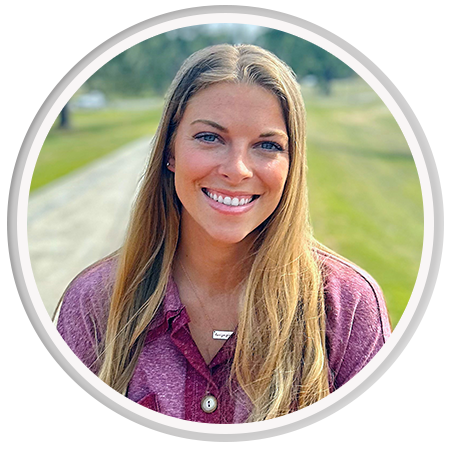
Mallory Shelton
BCBA | Jonesboro
Mallory Shelton is from Jonesboro, Arkansas, where she works as a BCBA. Mallory Attended Arkansas State University for her undergraduate degree in exercise science. Mallory then attended Ouachita Baptist University, where she received her master’s degree in Applied Behavioral Analysis.
Mallory started in the field of ABA as a Registered Behavior Technician (RBT) for two years in Little Rock before joining the Inner Circle team as a BCBA in 2022, where she has been able to continue growing her passion for helping others and improving the lives of the families she serves.
For Mallory, each child she works with gives her the inspiration to continue with her dedication to families who need support. Outside of work you can find her working in her flower beds and spending time with her family at the lake.
Frequently Asked Questions About ABA Therapy
Who can benefit from ABA therapy?
ABA therapy helps children with autism improve social interactions and learn new skills and adaptive behaviors.
How does ABA therapy work?
ABA is based upon the principles of Behavior Analysis — that all behavior is shaped by interaction with the environment.
Inner Circle’s integrative approach to ABA therapy emphasizes your child’s development across a variety of categories including communication, social interaction, language development, daily living skills, play skills, and social-emotional development.
Therapy will incorporate a wide variety of skill areas such as language, communication, social skills, connecting with others, building confidence, positive self-esteem, daily living skills, critical thinking, and academic readiness.
What are the goals of ABA therapy?
Ultimately, it is our goal for every child to develop skills that will allow them to participate successfully in “real-life”. In order to ensure progress toward this goal, each treatment plan includes an individualized transition plan that defines the core skills and goals that are needed prior to transitioning out of ABA therapy.
How is progress measured in ABA therapy?
At Inner Circle, we recognize that every child is unique and requires measures of progress that are individualized along with their treatment plan.
Methods to record data and analyze behavior include: direct observation, event, duration and interval recording, and Antecedent-Behavior-Consequence (ABC) data collection.
How long does ABA therapy take?
Because ABA therapy is tailored to each child’s unique needs there is no magic formula or quick answer for how long your child will need ABA therapy. The length of time depends on several factors including skills, needs, goals, rate of progress, attendance, intensity of services, and other factors. Therapy can range from several months to several years.
How many hours per week are typically recommended for ABA therapy?
What does a typical ABA therapy session look like?
ABA therapy sessions are tailored to each child’s specific goals, interests and skills and will therefore be different for each child. However there are some common elements that are often incorporated into every session:
- Natural environment, play based instruction in which learning objectives and goals are naturally incorporated into interactive play.
- Direct one-on-one instruction from a therapist, often reflecting classroom-like table top tasks
- Social skills and group instruction often involves working on skills with their peers during activities such as art, music, circle time, pretend play, and group games.
- Therapy built around the use of reinforcement and positive interaction in order to build and maintain motivation for learning.
- Data collection occurs during every ABA session in order to document your child’s progress, behaviors, and skills. Data is collected digitally by registered behavioral therapists (RBTs) and BCBAs through a web based platform and will occur in real time throughout the session.
- Parent involvement is an important part of every ABA therapy program.
Will ABA therapy help improve my child's communication and social skills?
The improvement of communication and social skills is a core element of ABA therapy. At Inner Circle, we focus on functional communication, emphasizing the understanding and use of language in meaningful contexts.
For children who have limited vocal communication, we teach them to use alternative methods of communication including alternative communication (AAC) systems, such as sign language, picture exchange communication systems (PECS), or speech-generating devices.
We strive to help every child express their wants, needs, and thoughts through effective communication.
Can ABA therapy help reduce challenging behaviors?
ABA therapy is effective in helping to reduce challenging behaviors such as tantrums, bed-wetting, feeding problems, aggression, self-injury, and other behaviors. In addition, ABA therapy focuses on helping each child develop new, more appropriate behaviors and skills.
Is ABA therapy evidence-based?
Yes, ABA therapy is widely recognized as the only scientifically valid therapy available for treating behavioral issues associated with autism.
What is a Board-Certified Behavior Analyst (BCBA)?
Board-Certified Behavioral Analysts have completed graduate-level education requirements in the field of applied behavioral analysis and a minimum of one thousand hours of field work. After meeting the education and experience requirements they must pass a comprehensive exam administered by the Behavioral Analyst Certification Board (BACB). They must adhere to a code of ethics outlined by the BACB which emphasizes maintaining professional conduct, protecting client rights and confidentiality, and providing effective treatment. Additionally, BCBAs must engage in ongoing professional development to maintain their certification.
BCBAs are highly trained professionals who specialize in behavior analysis and apply their expertise to assess, analyze, and address behavioral challenges.
How can parents and caregivers be involved in ABA therapy?
Parent involvement is an important part of every ABA therapy program which is why we have built a parent training/observation room at each of our centers designed specifically to provide the opportunity for you to participate in your child’s journey.
Is ABA therapy covered by insurance, and how much does it cost?
Yes! Below is a current list of our current in-network providers, however if your insurance is not listed, we will work to find you options for services.
- Arkansas Medicaid
- Summit Community Care
- Empower Healthcare
- Arkansas Total Care
- CareSource
- Blue Cross Blue Shield
- United Healthcare
- Cigna
- UMR
- Soonercare
- Qualchoice
- Oklahoma Complete Health
- Humana Healthy Horizons of Oklahoma
- Aetna Better Health of Oklahoma
Costs associated with ABA therapy depend on a number of factors, including the treatment plan, number of hours, and your insurance coverage.
How is ABA therapy different from other therapies for autism?
ABA therapy is based on behavioral science and helps teach new skills and behaviors in a fun and positive way through play-based interactions. While traditional speech and occupational therapies may be 1-2 visits per week, ABA therapy is more intensive, often occurring Monday – Friday for 25-40 hours per week.
Can ABA therapy help with daily living skills and independence?
ABA therapy can be instrumental in teaching and promoting daily living skills to promote independence. Some of these skills include:
- Potty Training
- Handwashing
- Tooth Brushing
- Feeding
- Dressing
- Hygiene
Is ABA therapy only for children with autism?
At Inner Circle we treat children with autism through age 10, depending on insurance coverage.